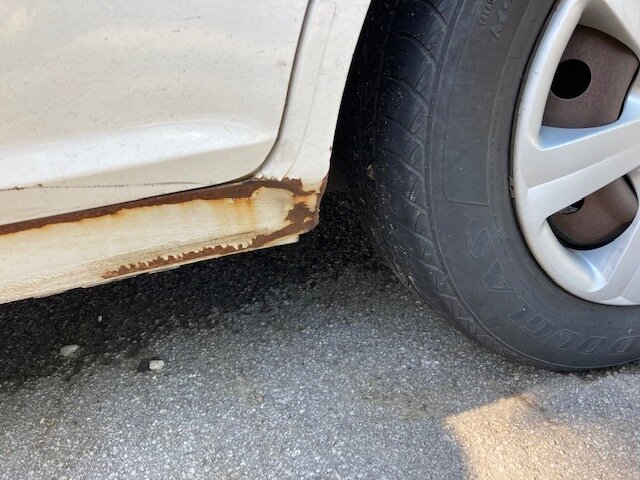According to Need
Some time ago, I witnessed a minor auto accident. I was in the parking lot of the probation and parole offices in the town where I live when a medium-sized car hit the bumper of a truck. Initially, I thought the truck bumped the car but then saw no driver in the larger vehicle.
The car proceeded to drive away though there was obvious damage. I got into my vehicle and followed the car to the end of the drive. Taking down the license number, I gave it to the owner of the truck when he arrived unawares on the scene.
As it turned out, the truck belonged to a probation officer, and the auto was driven by one under supervision. In short order, the driver of the car was contacted and cited by police. Happily, the woman had insurance, and the officer was burdened with the aggravation of repairing his vehicle without financial responsibility.
I reflected on the woman who had caused the incident. She did not intend to create a problem for herself or another that day in that manner. It was an accident. Probably, it was caused by inattention (at first) but no worse. I considered that she was already in trouble and only made things worse by the day’s events. She was the cause of the difficulty, but she didn’t need any more troubles in her life. Her plate was full.
I felt sorry for her. Many people elicit sympathy though they have forged their own bonds. In ways, that is true of all of us, and we each hope that someone will understand and care for us in our calamity.
Musing, I reminded myself that the woman’s actions after the fender-bender signaled a deficit in character. Then again, she was panicked, and fear brought out her worst self.. I considered that the consequences of the incident had greater repercussions for her than for the aggrieved party. The officer would have had the unfortunate insurance dealings and some out of pocket costs, but he was better prepared to endure those things than the miscreant her consequences.
Why not just let her drive away? She has enough problems already.
This is the type of thing our government deals with all the time. To its discredit, our system often sides with the perpetrators of misdeeds or recklessness because they are already impoverished and hands the bill to those who have made better life choices and can handle harm more easily.
I have struggled with grace and truth my entire life. Setting high personal goals, I have yet to attain them in significant degree. I have often been unsure of how to deal with others in their fallenness. Is it right to have lofty ideals? In what measure should grace be extended, and does it even apply to me?
The turmoil has been profound. I have found my sincerest efforts to be lacking in mercy and constraint. Sentimentality seldom finds common ground with severity. It’s easy to follow the path of feelings to ends of unaccountability or unilateral perdition. The plain fact is that there are poles of tension between our goals of righteousness and recovery. It is precisely the fall from grace which has rendered us incapable of dispensing joy and justice. We choose between the two.
God has mercy on us all, but does not excuse our wrongdoings. It is marvelous in our eyes that the Almighty has the wisdom to do both simultaneously and without error. It will be easier for us to comprehend (however imperfectly) mysterious actions and attitudes of the Lord if we cooperate with Him in the things we do understand.
Truth is not an ethereal thing determined by fiat, but has foundational precepts which may be unveiled over time. It is not easy to divine a clear path in murky relativistic days such as our own, but there is a hallowed ground on which we may stand if we give ourselves to the knowledge of God and godliness. Our own foibles may well be obstructions in the pursuit of truth.
The question we face is whether we will bring our concerns to God’s revelation or simply drive away.
Sterl

